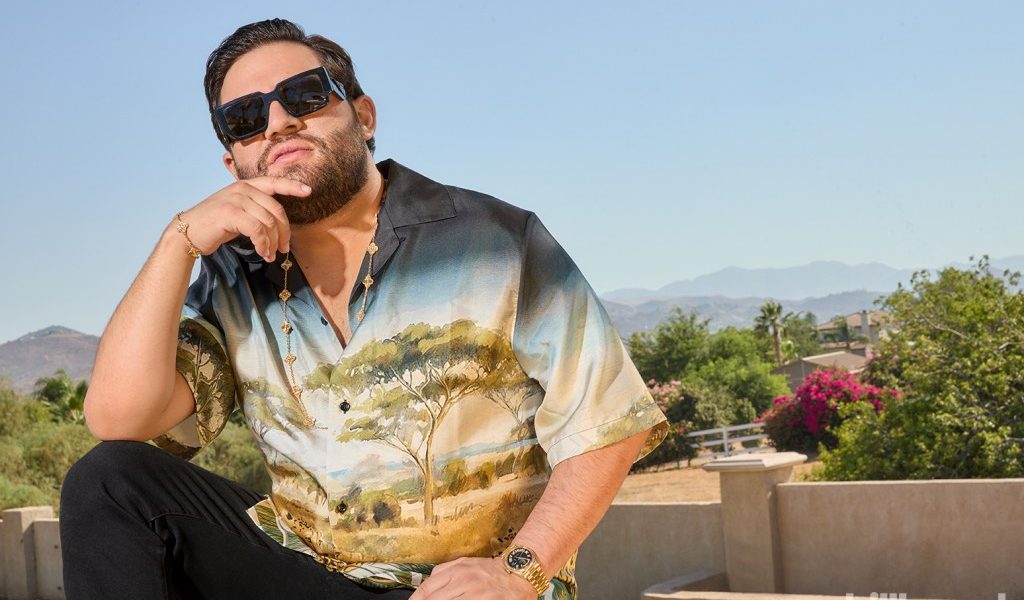A performance by the renowned Mexican corrido artist Luis R. Conriquez erupted into chaos on Friday night, April 11, during the highly anticipated Feria del Caballo in the State of Mexico. The turmoil began when the artist announced that he would not perform any narcocorridos, following a recent ban on glorifying violence imposed by several municipalities across central Mexico. This decision aimed to promote safety and respect for the community, but it did not sit well with many fans present at the event.
While entertaining the crowd at a palenque—a more intimate performance setting at popular fairs—Conriquez faced backlash as the audience expressed their disappointment through boos and jeers. They were dismayed by the absence of some of his most celebrated songs, many of which have come under fire for allegedly glorifying drug trafficking. As tensions escalated, some attendees resorted to throwing punches and causing damage to the venue, showcasing the heated emotions that surged through the crowd during the performance.
In videos circulating on social media, Conriquez can be heard asking the audience, “There are no corridos. What do we do? Should I just go home instead?” This plea occurred just moments before the situation spiraled into chaos, highlighting the discontentment among fans who had come to see their favorite corrido singer perform live.
Before the show, Conriquez had informed his fans via social media that narcocorridos would be excluded from his setlist at the Texcoco Fair. He shared, “We’re entering a new phase, without corridos and all that. It feels bad not being able to sing what people want to hear, but we’re joining the cause of zero corridos and moving forward.” This statement reflected his commitment to comply with the new regulations while also expressing his disappointment in not being able to deliver the music his fans expected.
Despite his efforts to clarify the rationale behind the absence of narcocorridos in his performance, the reaction from the audience was overwhelmingly negative. They reacted by booing and hurling empty cups and other objects toward the stage, showcasing their dissatisfaction and frustration. In response to this escalating situation, Conriquez made the decision to leave the stage, which only intensified the audience’s anger, leading to a flurry of chairs and other items being thrown in protest.
Conriquez further addressed the situation on Instagram, stating, “There are many people who don’t understand. They think we’re the ones setting the rules, but the truth is there won’t be any corridos at events from now on, for any artist, my people. Cheer up. I love you all. The people who truly support us will continue doing so, even if we’re playing bachata.” His words aimed to reassure his loyal followers while acknowledging the challenges posed by the new restrictions on music content.
The prohibition on performances that glorify violence extends beyond Texcoco, affecting two other municipalities in the State of Mexico, Metepec and Tejupilco. This law, which went into effect on April 9, imposes strict regulations on popular fairs and mass events, with penalties that could lead to up to six months in prison for violators, according to reports from the Milenio newspaper. This significant legal shift reflects a growing concern regarding the impact of certain music genres on public safety and social values.
As of now, there has been no official comment from the authorities in Texcoco or the organizers of the Feria del Caballo regarding the chaotic incident during Conriquez’s performance. Billboard Español has reached out to Conriquez’s team for a statement but has not yet received any response. The lack of communication from officials may contribute to the uncertainty and frustration felt by attendees who were looking forward to the concert.
The ongoing ban on narcocorridos in various municipalities within the State of Mexico adds to similar restrictions that have been implemented in other regions. This follows a controversial incident on March 29, when images of a notorious cartel leader were projected at a concert by the group Los Alegres del Barranco at the University of Guadalajara in Jalisco. This event prompted the U.S. to revoke work and tourist visas for the members of the group, highlighting the serious ramifications associated with the glorification of crime in music.
On the same day as the concert chaos, the government of Jalisco introduced a legislative bill aimed at reforming laws against the glorification of crime in both public and private performances. This initiative aims to empower municipalities to regulate and, if necessary, prohibit musical groups that promote violence in their performances, as stated in a post on X. This legislative action demonstrates a concerted effort by local governments to address public safety concerns related to music.
In a proactive response to these challenges, Mexican President Claudia Sheinbaum, through the Secretary of Culture, announced the launch of the binational contest México Canta (Mexico Sings). This initiative is designed to inspire young artists—particularly those in the emerging genre of corridos tumbados—to create music that steers clear of themes glorifying violence or drugs. This program reflects a shift towards fostering a more positive cultural narrative within the music industry.







